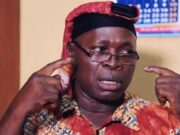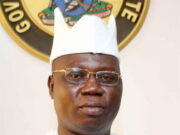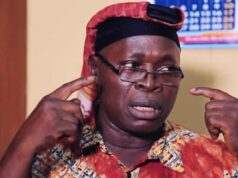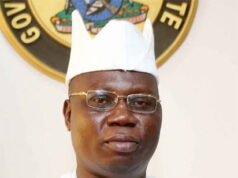The Financial Reporting Council of Nigeria (FRC) has said the country has reaffirmed its leadership role in sustainability reporting by shifting the focus beyond mere regulatory compliance to attracting capital inflows and boosting investor confidence.
Speaking at the 2nd Regulatory Roundtable on the Implementation of International Sustainability Standards Board Sustainability Reporting Standards on Wednesday in Abuja, Executive Secretary/Chief Executive Officer of the Financial Reporting Council of Nigeria, Rabiu Olowo, said the country’s strategy is to move beyond box-ticking and show how quality sustainability disclosures can strengthen investment decisions.
2024, Nigeria became the first African nation to formally adopt the ISSB’s standards, underscoring its ambition to shape industry-specific metrics that are globally comparable and competitive. The move is being driven in partnership with NGX Regulation Limited and the ISSB to accelerate awareness and adoption across sectors.
A roadmap released by the FRC outlines a phased implementation beginning with voluntary adoption by willing institutions and progressing to mandatory requirements for different categories of entities.
Already, early adopters such as Access Bank, Fidelity Bank, MTN Nigeria, and Seplat Energy have begun integrating the standards into their reporting frameworks.
Speaking during the event, Olowo said, “About a year ago, precisely on August 15, 2024, you will recall we had the first regulatory roundtable here in Abuja, to seek your buy-in and support for ISSB sustainability reporting, which is a global baseline for comparability, accountability, and transparency. You not only gave your support, but you also walked the talk by giving us full encouragement in collaboration with us towards seamless sustainability reporting implementation. This has yielded some positive results. Today, the drum of success in sustainability reporting in Nigeria.
He said the proposed changes were designed to address long-standing concerns raised by preparers of sustainability reports, especially in the financial sector.
Olowo noted that one of the biggest challenges had been the reporting of Scope 3 Category 15 emissions, which he described as “complex and burdensome” for banks and insurance firms. “The ISSB has now proposed relief from disclosing emissions linked to derivatives, facilitated transactions, and insurance activities, while retaining focus on financed emissions,” he explained.
Other proposed amendments, according to him, include allowing companies to use jurisdiction-required global warming potential values instead of strictly following the Intergovernmental Panel on Climate Change’s latest figures, and clarifying the use of alternative greenhouse gas measurement methods where the Greenhouse Gas Protocol proves difficult to apply.
Olowo further stated that industry-specific guidance would be updated to align IFRS S2 with the Sustainability Accounting Standards Board framework, covering nine priority industries and 37 additional sectors.
“These amendments are aimed at reducing duplication, lowering compliance costs, and still ensuring that investors receive useful decision-making information,” Olowo said.
He noted that the ISSB intends to finalise the changes by the end of 2025, while stressing that Nigeria must carefully deliberate on how best to adopt them. “One of the key objectives of this roundtable is to chart a path that eases reporting for Nigerian preparers, devoid of multiplicity and duplicity of regulatory reports,” he said.
On her part, a member of the International Sustainability Standards Board, Ndidi Nnoli-Edozien, called on Nigerian regulators, banks, and corporate preparers to provide case studies that show how sustainability reporting has unlocked capital and reduced the cost of financing for businesses.
Nnoli-Edozien stressed that Nigeria must go beyond compliance with international standards to demonstrate tangible benefits of sustainability-related disclosures.
“We need to pull out the case studies of entities that have reported early where their successes are, and also where they’re struggling. More importantly, we need to share stories where sustainability has helped to unlock capital or reduce the cost of capital. Once we have those stories, it creates a pathway that the world can follow,” she said.
The Director-General and CEO of the Nigerian Meteorological Agency, Charles Anosike, stressed the importance of climate data in strengthening sustainability reporting.
According to him, one of the most fundamental challenges in sustainability reporting is the collection and verification of data. Anosike said that NiMet is committed to collaborating with the FRC and other organisations to ensure climate-related issues are integrated into corporate decision-making.


















